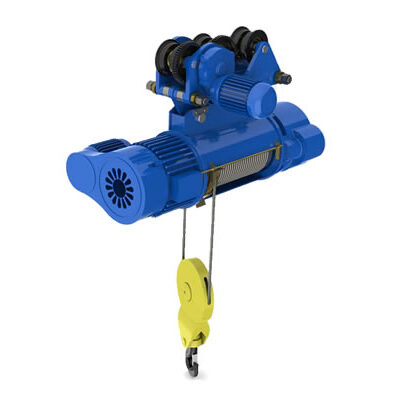Electric hoists have become indispensable in the modern industrial landscape, revolutionizing material handling through advanced engineering solutions. These devices, designed to lift heavy loads with precision and efficiency, are now equipped with cutting-edge technology that enhances their performance and reliability. Unlike traditional hoisting methods, electric hoists utilize electric motors to lift and lower loads, significantly reducing the physical effort required by operators and minimizing the risk of workplace injuries. This transition to electric systems not only improves safety but also increases productivity, as tasks can be completed more swiftly and with greater ease. One of the remarkable advancements in electric hoist technology is the integration of smart systems. Many modern electric hoists are now equipped with sensors and automation features that allow for real-time monitoring of load weights, movement speed, and operational status. This data-driven approach enables operators to make informed decisions, optimizing lifting operations and minimizing downtime. Furthermore, features such as overload protection ensure that the hoists operate within safe limits, reducing the likelihood of equipment failure and accidents.

This is particularly crucial in industries where heavy lifting is routine, such as construction, manufacturing, and warehousing. The versatility of electric hoists is another factor contributing to their widespread adoption. They come in various configurations, including wire rope hoists, chain hoists, and beam hoists, allowing them to be tailored to specific applications and environments. For instance, wire rope hoists are ideal for heavy-duty lifting tasks in outdoor settings, while chain hoists are perfect for lighter loads and indoor use. Additionally, many electric hoists can be mounted on various structures, such as overhead beams or gantries, providing flexibility in installation and usage. Energy efficiency is also a significant advantage of electric hoists. With a focus on sustainability, manufacturers are designing hoists that consume less energy without compromising performance. This not only lowers operating costs for businesses but also contributes to reducing the carbon footprint of industrial operations. As industries strive for greener practices, the demand for energy-efficient equipment like electric hoists continues to grow.
In terms of maintenance, modern electric hoist are engineered for durability and ease of service. Many models feature modular designs, allowing for quick replacements of components without extensive downtime. Additionally, manufacturers provide comprehensive maintenance guidelines and support, ensuring that businesses can keep their equipment in optimal condition. In conclusion, electric hoists are transforming material handling through advanced engineering solutions that prioritize safety, efficiency, and sustainability. By leveraging technology, versatility, and energy efficiency, these devices are not only enhancing productivity but also paving the way for safer and more sustainable industrial practices. As industries continue to evolve, the role of electric hoists will undoubtedly expand, setting new standards in material handling and contributing to the overall advancement of engineering solutions in the field.